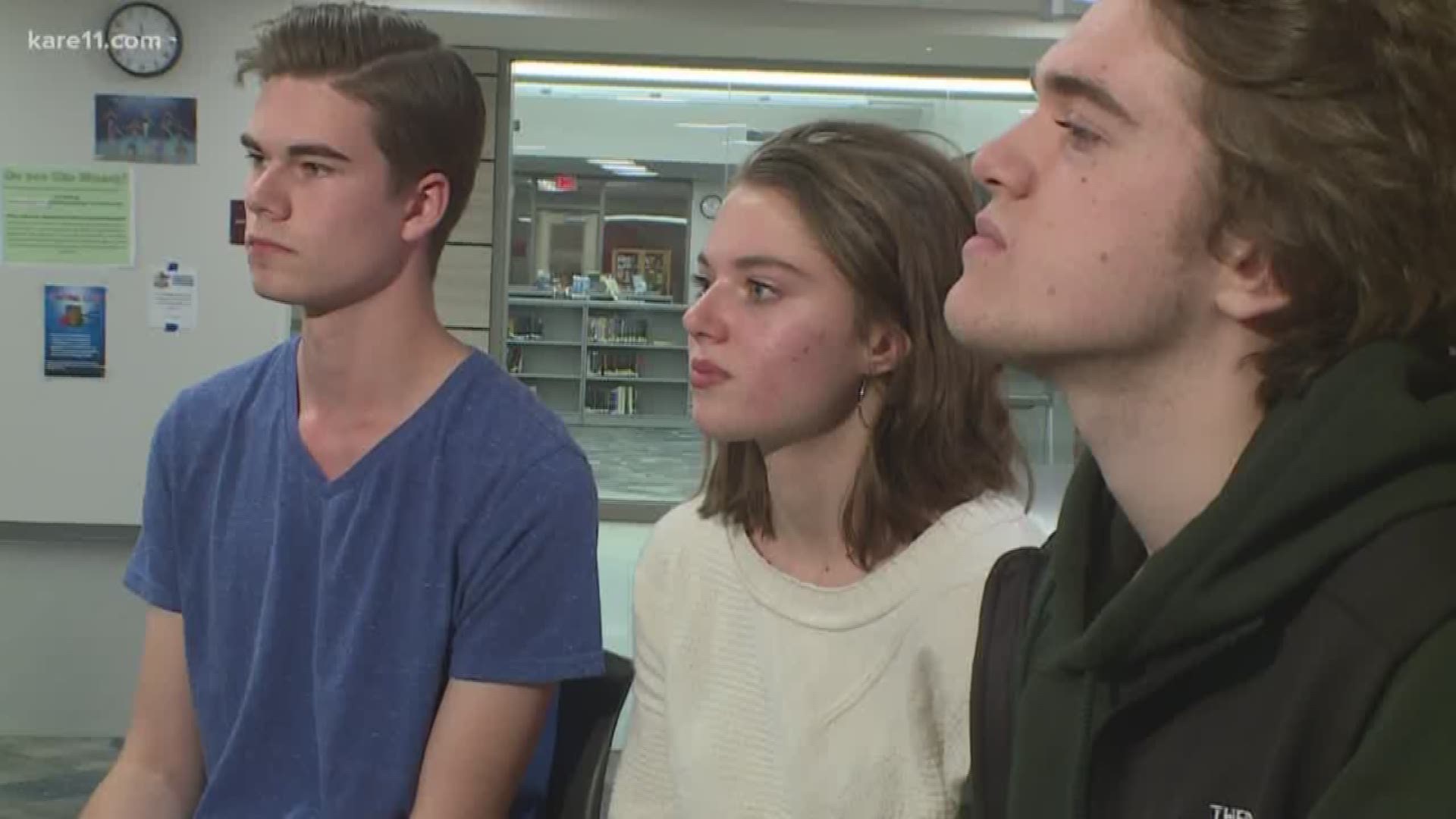FOREST LAKE, Minn. - In a matter of months, Ben Cartford, Rachel de Sobrino and Reed Nelson will be off to college as proud graduates of Forest Lake High School.
Don't expect them to coast through senior year, though.
They're spending their final days pushing for the passage of a November ballot referendum, designed to bolster the Forest Lake Area Schools' operating budget by more than $5 million per year.
"So many other districts have done this and passed operating levies," de Sobrino said. "And now Forest Lake needs to come together to pass this levy."
These three students are the masterminds behind a student-led campaign to "Vote Yes" on the November referendum, which would boost the operating levy devoted to day-to-day school resources. The levy has remained unchanged in Forest Lake since 2006.
With sluggish state support, Forest Lake has made $7.5 million in cuts over the past four years, according to district statistics. Class sizes have ballooned — de Sobrino said she has some classes with up to 40 students — and teacher salaries have remained stagnant, leading 53 teachers to leave the district over the past three years in favor of better-paying jobs in other districts.
"And if this levy doesn't pass, we're going to have to continue making those cuts," de Sobrino said. "So we need to make a change now."
The three seniors helped create videos to spread on social media, working in tandem with other supporters who've placed "We Love Our Schools" signs in their yards across the community. If the referendum passes, the district has vowed to use the money to increase teacher salaries, reduce class sizes and restore cuts made in previous years.
The students argue it's an investment in the community's future, not just the school district.
"You don't have to have kids in the district, or in our schools, to benefit from the levy," Nelson said.
But the potential impact on property taxes may make the referendum a tough sell with voters.
According to the district's analysis, a home valued at $250,000 would see a tax hike of $282.45 per year if voters approve the ballot item.
Just one year ago, voters blocked two referendums for both a levy and bond. Roughly 57 percent of voters opposed the two ballot questions. Prior to that 2017 vote, an outraged resident wrote in an opinion piece that the proposed tax hike was unfair because "we are not a bottomless pit of cash laying around for them to mine at will."
Although there does not appear to be any organized opposition to the November referendum this year, Superintendent Steve Massey acknowledges that some people will be concerned about paying more in property taxes.
That's why he said he has spent the past year trying to convince voters that the district sorely needs the extra money. The combination of an outdated operating levy and slow growth in state funding has slowly eroded the district's budget.
If the referendum does not pass this November, Massey said elementary schools may need to combine or even close. The district may need to reduce elective courses, and it may also need to increase fees for athletics, activities and transportation.
"It's not a question for conservatives or liberals, Republicans or Democrats. It's not a partisan issue," Massey said. "It's a values issue."
Forest Lake is hardly the only district seeking a boost to its operating levy. According to the state's school board association, at least 34 other districts are holding operating referendums in November. The vast majority of the referendums seek an increase in per pupil spending.
Denise Specht, the president of the trade union Education Minnesota, said the referendums are an unfortunate side effect caused by subpar state funding.
However, she said voters should still support them in November because districts across the state are under such financial stress.
"Are you willing to dig deep into your pockets so that your students' class sizes will go down? So that we can bring back that art teacher or after-school programming?" Specht said. "It's about the kids."
Cartford, one of the three seniors at Forest Lake, said the failed referendums last year had a profound effect on his district.
"Student and teacher morale just plummeted," Cartford said. "I think one thing is, us students want to see that the community wants to invest in us. If they will invest in us, students will be more likely to come back and contribute to the community."

